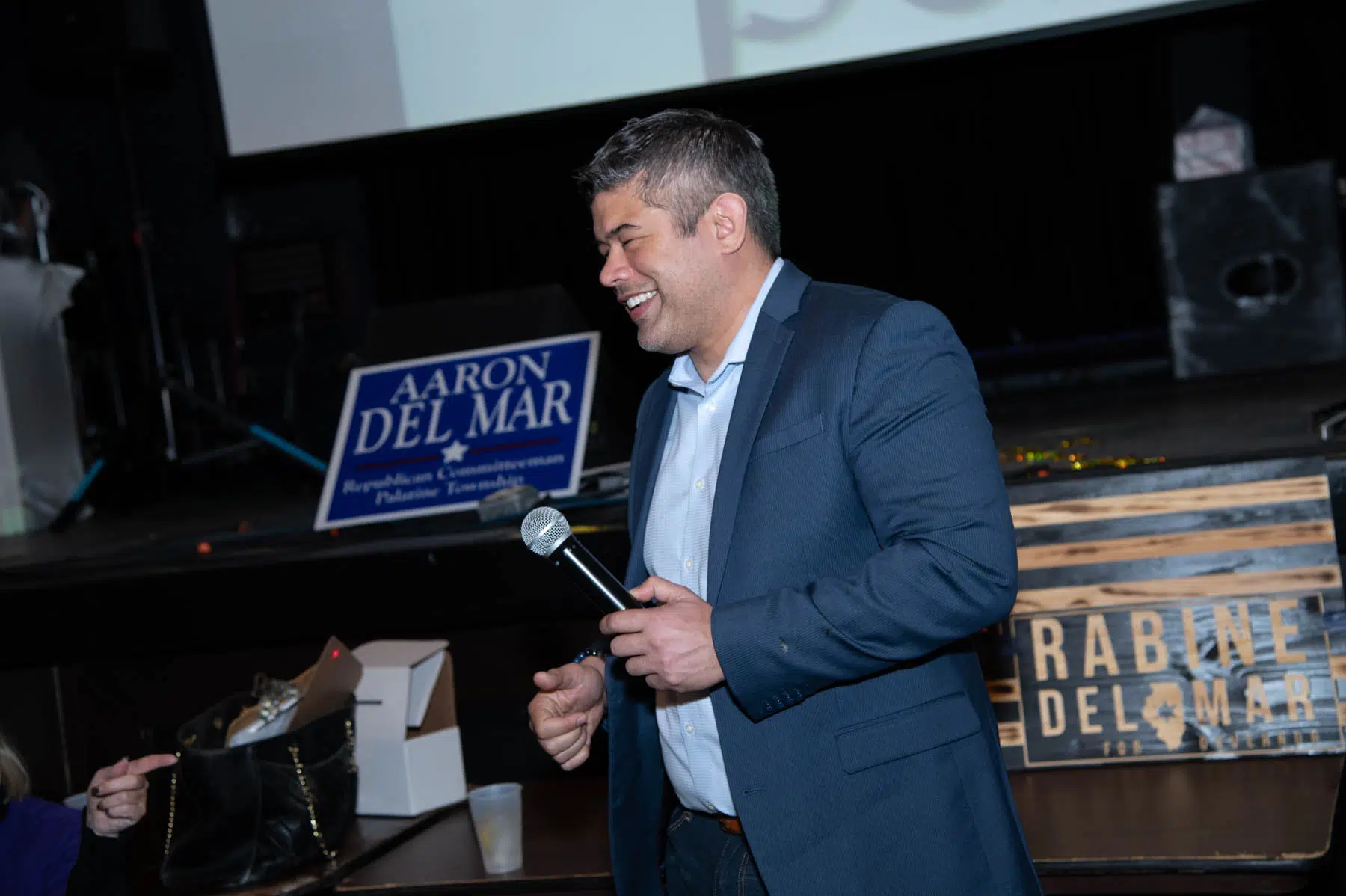Now is the time where candidates will start to challenge petitions. In McLean County there has already been a challenge to five county board Republican petitions, but at the state level…Gary Rabine, a gubernatorial candidate, is challenging Jesse Sullivan, another gubernatorial candidate.
“When they are [released], this is the way we make sure that every candidate has received notice of the objection and is aware of the objection. When the cases are assigned to their hearing officers on Tuesday, that’s when we make them public, because we can’t, we really can’t risk putting these out. Because ultimately we’re the judge in this case, our eight member board makes the ultimate decision. There are alleging multiple problems with the way the petitions were collected.
Gary Rabine’s Lieutenant Governor pick Aaron Del Mar said they don’t have animosity towards the Sullivan campaign but there’s a concern of voter integrity.
“It looked to us that there were some potential round tabling that was going on. He saw some signatures that didn’t have addresses. There were circulators that we could not find as registered voters or even lived in the state of Illinois,” said Del Mar.
The county will hold a hearing, taking the evidence here from both sides from the candidate and from the object door. The county electoral board will make a decision whether or not that objection is upheld. Candidates and objectors have a chance to challenge the electoral board. Here in McLean County the board will be made up of three people. At the state level a public hearing officer is assigned the objection.
“The cases are assigned to those hearing officers,” said Matt Dietrich, spokesperson for Illinois Board of Elections. “The hearing officers conduct a hearing with the objector in the case. To hear the nature of the objection and to hear the candidate’s side as well, the hearing officer then makes a recommendation in the case to our general council who reviews the facts and reviews the recommendation.”
County level offices are strictly dealt with at the county level.
“We only deal with judges, if they are in multiple county circuits, which most downstate judges are, but then the bulk of what we field for objections, concern, state, legislators,” said Dietrich.
The general council makes a recommendation to their eight-member board. At an April 21 meeting, the eight-member board will make rulings on all these objections, whether do sustain the objection or overrule the objection.
Tuesday, March 28 is when the public hearing officer will reach out to objectors and candidates and begin the hearing process.
Del Mar said Sullivan had a lot less time to gather the adequate amount of signatures because it took him a couple more weeks to find his running mate.
“He was under a tremendous amount of pressure. I understand that, but still in the state of Illinois, you’re required to have a 3,250 solid confirmed voters sign your petition. And if you don’t, then you’re not a candidate and we just want to stick to the rules,” said Del Mar.
And then we have to serve notice to all of the candidates who were objected to. So those notices went out this week on Tuesday and Wednesday and the candidates and objectors will appear at our meeting on Tuesday and they will have their cases assigned to hearing officers and it goes from there.
Del Mar said nobody has objected to their signatures, but through the party and through other campaigns Del Mar said that they know Matt Solomon has been challenged. Rabine’s campaign has not challenged any other campaign but Sullivan’s.
Does the Rabine campaign think the Sullivan voter based would vote more favorably for Rabine if Sullivan weren’t on the ballot? Del Mar said he would guess that the Rabine team would probably take a third or maybe two thirds and the other third might go to Richard Irvin.
“I think that no matter what happens with Sullivan’s petitions, I think that Gary and I are going to be the winning ticket on June 28,” said Del Mar. “Each one of us has a different strategy, but for us being conservative Republicans that have a strong base in the Northern Cook county suburbs, as well as McHenry county…that’s very attractive to a lot of people that don’t believe that Darren Bailey has electability in Illinois.”
Matt Dietrich said a lot of times people will object by checking names and addresses of people who have signed against the statewide voter database.
“If someone is found to be not actually a registered voter or to be not registered at the address that they signed they mark that and they can have that signature challenged and possibly stricken,” said Dietrich. “What they’ll do is they will go through a candidate’s complete stack of petitions.”
But how does the hearing look?
The Illinois Board of Elections staff will sit at a terminal that is connected to the statewide voter data.
“And on one side of us is a representative of the candidate or the candidate themselves. And on the other side is a representative of the objector and we go through each signature one by one,” said Dietrich.











